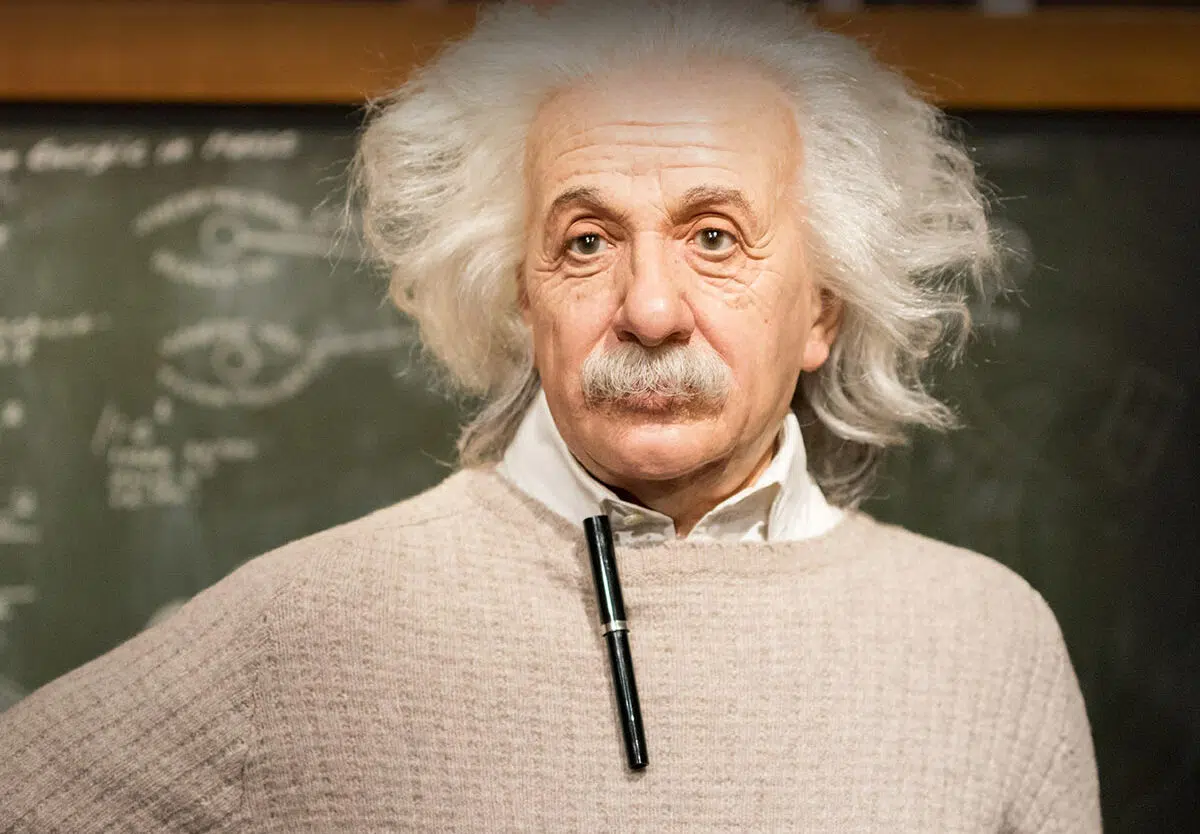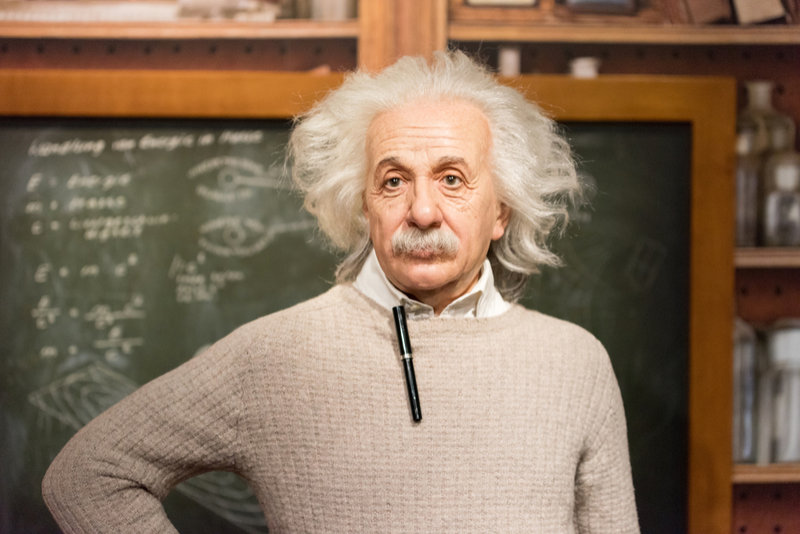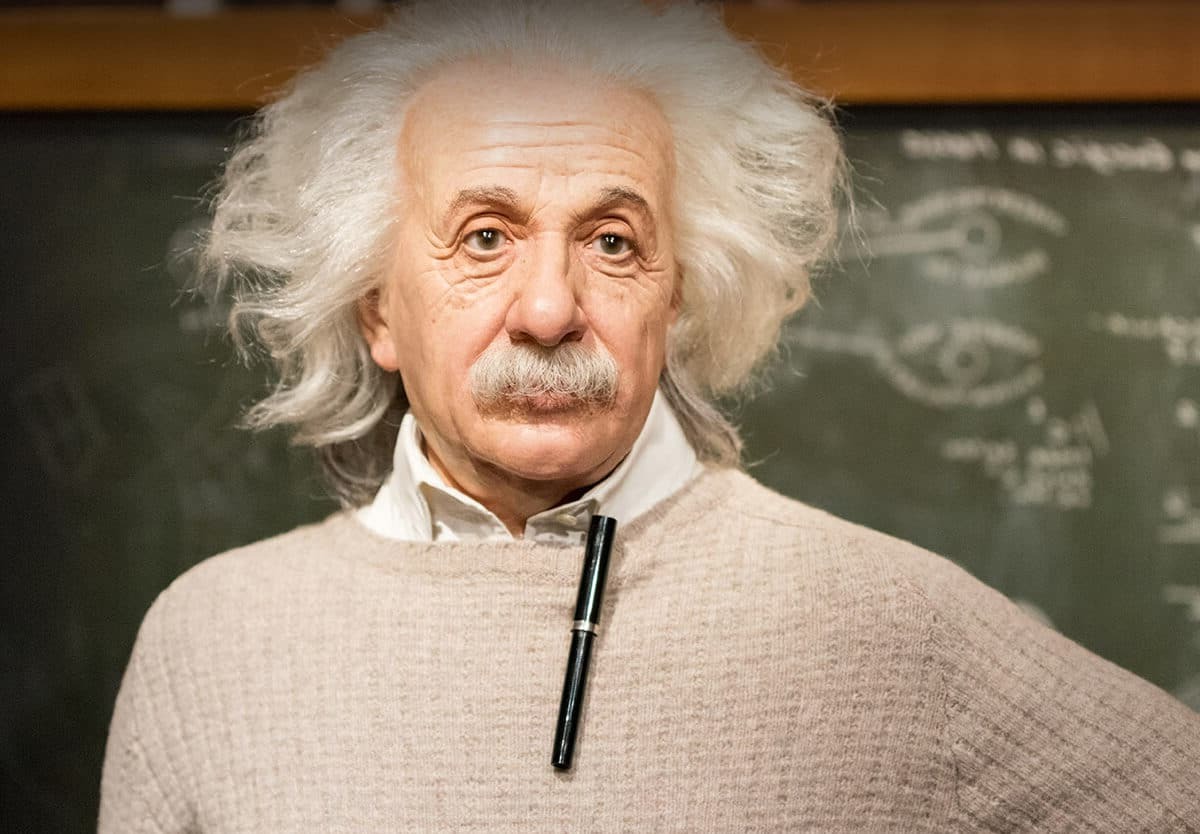Unpacking The Genius Of Einstein: A Look At His Life And Lasting Impact Today
There are few names that bring to mind brilliance quite like Einstein. It's almost as if the very sound of it conjures images of deep thought, groundbreaking ideas, and a mind that saw the universe in ways no one else could. For many, Albert Einstein is not just a scientist; he's a symbol of human curiosity and the incredible things we can achieve when we dare to ask big questions. His work truly reshaped how we look at the world around us, and that's a pretty big deal, you know?
From his early days dreaming about light beams to becoming the most famous scientist in human history, Einstein's journey was packed with moments of insight and perseverance. He wasn't just a brain, though; he was a person with a life full of experiences, challenges, and a unique way of looking at everything. So, we're going to take a little trip into his world, seeing what made him tick and why his ideas still matter so much, even now in .
You might know him for his wild hair or that famous equation, but there's so much more to his story. We'll explore the big ideas he came up with, the awards he received, and even some of the personal parts of his life. It's a chance to get a bit closer to the person behind the legend, and really, who wouldn't want to learn more about someone who changed everything?
Table of Contents
- The Life and Times of Albert Einstein
- Personal Details and Biography Data
- Einstein's Enduring Legacy
- Frequently Asked Questions About Einstein
The Life and Times of Albert Einstein
Early Beginnings and Education
Albert Einstein, as a matter of fact, was born in Ulm, Germany, way back in 1879. He was a curious child, apparently, and showed an early interest in how things worked. You know, like how a compass always points north or what happens when you try to catch up with a beam of light. These early thoughts, in a way, set the stage for the massive ideas he would develop later on. His school days weren't always easy, as he sometimes struggled with the rigid teaching styles of the time, preferring to learn things his own way. He often felt like the traditional system didn't quite fit his unique mind, which is something many creative people can probably relate to, even today.
He eventually went on to study physics and mathematics at the Swiss Federal Polytechnic School in Zurich. It was there that he really started to dig into the big questions of the universe. He might have been a bit of a rebel in his studies, often skipping lectures to read up on things that truly fascinated him, but he was incredibly dedicated to understanding the core principles of physics. This dedication, you see, was a pretty clear sign of the brilliant path he was about to forge.
His Big Scientific Breakthroughs
Einstein really hit his stride in 1905, a year often called his "Annus Mirabilis," or "Miracle Year." In this one year, he published several papers that completely shook up the world of physics. One of the most famous, of course, was his work on the special theory of relativity. This idea, basically, showed us that time and space are not separate, fixed things, but are actually woven together, and how they appear can depend on your movement. It was a completely new way of looking at the universe, and it was, honestly, mind-blowing for many people.
Then, a few years later, he expanded on this with the general theory of relativity, which is one of the two main pillars of modern physics, right alongside quantum mechanics. This theory, as a matter of fact, explained gravity not as a force pulling things together, but as the bending of space and time itself caused by massive objects. Think of it like a bowling ball on a trampoline; it makes a dip, and smaller marbles roll towards it. That's kind of how gravity works, according to Einstein. His ideas were so revolutionary, and they truly changed the way we understand the universe, from the smallest particles to the largest galaxies. He always appeared to have a clear view of the problems of physics and the determination to solve them, and that's a pretty powerful quality to have.
He also made significant contributions to quantum theory, particularly with his explanation of the photoelectric effect, which is about how light can knock electrons out of metal. This work, you know, was a huge step forward in understanding light and energy at a very tiny level. His genius wasn't just in coming up with new ideas, but in being able to visualize the main stages on the way to his goal, which is a rare talent.
The Nobel Prize and Global Recognition
So, because of his incredible work, Albert Einstein won the 1921 Nobel Prize in Physics. It wasn't actually for his theories of relativity, which is something many people often get mixed up about. Instead, he got the prize for his explanation of the photoelectric effect, which was a really important piece of the puzzle in quantum physics. This award, basically, cemented his place as one of the most important scientific figures of his time, and really, of all time.
After winning the Nobel, his fame grew even more. He became a global celebrity, a symbol of genius, and his face, with that wild hair, became instantly recognizable. He traveled the world, giving talks and sharing his ideas, and he was, you know, quite a public figure. His influence went far beyond just physics; he became a voice on many important issues, always speaking his mind.
Life After Fame and His Final Years
Einstein's life wasn't just about equations and theories; it was also about navigating a changing world. He moved to the United States in the 1930s, leaving Germany due to the rising political tensions there. He took up a position at the Institute for Advanced Study in Princeton, New Jersey, where he spent the rest of his career. Even in his later years, he continued to explore new ideas and try to unify the fundamental forces of nature, a quest he called the "unified field theory," which was a pretty ambitious goal.
He also became a strong advocate for peace and social justice. He spoke out against war and for civil rights, using his fame to try and make the world a better place. Albert Einstein lived not just a life of the mind, but a life of meaning, which is something we can all appreciate. He passed away in 1955, leaving behind a legacy that continues to inspire scientists, thinkers, and just curious people everywhere. His contributions, you know, are still felt in so many areas of science and technology today.
Personal Details and Biography Data
Here's a quick look at some key facts about Albert Einstein:
| Full Name | Albert Einstein |
| Born | March 14, 1879 |
| Birthplace | Ulm, Kingdom of Württemberg, German Empire |
| Died | April 18, 1955 (aged 76) |
| Place of Death | Princeton, New Jersey, United States |
| Nationality | German (1879–1896), Stateless (1896–1901), Swiss (1901–1955), American (1940–1955) |
| Spouses | Mileva Marić (m. 1903; div. 1919), Elsa Löwenthal (m. 1919; d. 1936) |
| Children | Lieserl Einstein (daughter), Hans Albert Einstein (son), Eduard Einstein (son) |
| Known For | Theory of Relativity (Special and General), Photoelectric Effect, Mass-Energy Equivalence (E=mc²) |
| Awards | Nobel Prize in Physics (1921) |
| IQ (Estimated) | Estimates vary, often cited in the 160-190 range (Note: IQ tests as we know them didn't exist in his early life, these are retrospective estimates based on his achievements and writings). |
Einstein's Enduring Legacy
The impact of Albert Einstein's work is, simply put, enormous. His theories didn't just change physics; they changed how we think about the very fabric of reality. He taught us that time bends, light curves, and gravity pulls not just on bodies—but on hearts, in a way, influencing how we see our place in the cosmos. His ideas are the foundation for so much of modern technology, from GPS systems that rely on the principles of relativity to nuclear energy. It's really quite incredible how far-reaching his insights have been, even decades after his passing.
Beyond his scientific contributions, Einstein's image as the quintessential genius continues to inspire. He represents the power of independent thought, the courage to challenge established ideas, and the importance of asking "why." His life story, you know, is a powerful reminder that curiosity and a persistent drive to understand can lead to truly extraordinary discoveries. He was a theoretical physicist and the most famous scientist in human history, and that's a title that truly fits him.
His influence is also felt in the world of healthcare, in a way, through institutions that carry his name, symbolizing a commitment to cutting-edge research and patient care. For instance, the Einstein Healthcare Network, with facilities like Einstein Medical Center Montgomery and Einstein Primary Medicine at Wayne Avenue, embodies a dedication to medical advancement and providing care for people. They have an accredited Level I Regional Resource Trauma Center, which is one of the busiest emergency rooms in Philadelphia, and that's a pretty important service for the community. You can learn more about innovative healthcare on our site, and also find out about the various specialized care options available, like gender affirming care or the work of doctors such as Patrick Cooper, MD, FAANS, who joins Einstein Healthcare Network’s Division of Neurosurgery and is a member of the Einstein Spine Institute, which is a pretty big deal. Or you might want to learn about the work of Christopher Plastaras, MD, or Ronald Leonard, MD, and others who are part of this network, which you can do by linking to this page here.
So, the name Einstein, you see, has come to mean more than just one person; it represents a commitment to excellence, innovation, and pushing the boundaries of what's possible, whether in the grand theories of the universe or in the day-to-day care of people. His legacy, truly, lives on in so many different forms, shaping our world in ways we might not even fully realize. It's a pretty amazing thought, isn't it?
Frequently Asked Questions About Einstein
Here are some common questions people often ask about Albert Einstein:
1. What did Albert Einstein invent?
While Albert Einstein didn't invent a physical device in the way, say, Thomas Edison invented the light bulb, he actually developed groundbreaking theories that changed our understanding of the universe. His most famous contributions include the special and general theories of relativity, and his explanation of the photoelectric effect. These theories, in a way, paved the path for many modern inventions and technologies, like lasers and nuclear power, even GPS systems. So, he invented ideas, which is arguably more powerful.
2. What was Albert Einstein's IQ?
It's interesting, but there's no official record of Albert Einstein taking a modern IQ test. The concept of IQ tests, as we know them today, really wasn't fully developed during his early life. Estimates of his IQ are usually based on his achievements and writings, and these often place him in a very high range, perhaps around 160 to 190. However, it's important to remember that these are just estimates, and IQ scores don't fully capture the breadth of someone's genius or creativity, you know?
3. How did Albert Einstein die?
Albert Einstein passed away on April 18, 1955, at the age of 76. His death was caused by an abdominal aortic aneurysm, which is a weakening in the wall of the main artery that carries blood from the heart. He had refused surgery, reportedly saying, "I want to go when I want. It is tasteless to prolong life artificially. I have done my share; it is time to go. I will do it elegantly." His passing, you see, marked the end of an era for many in the scientific community.
For more detailed information about Albert Einstein's life and work, you can visit the official Nobel Prize website, which is a pretty reliable source.

Albert Einstein Birthday

What Was Einstein’s IQ and Has Anyone Ever Beaten It? | Mindvalley Blog

21 Facts About Albert Einstein - OhMyFacts